Category Archives: Western Pacific
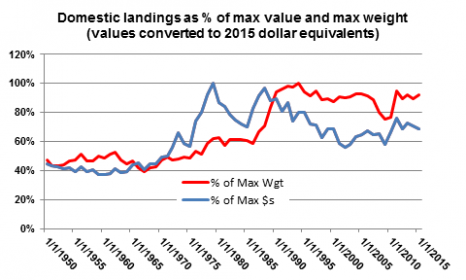
Nils Stolpe, Fishnet USA – So how are we doing? (2017 edition) A Report on our Domestic Commercial Fishing Industry
I occasionally share my impressions of how the domestic commercial fishing industry is doing, using as my primary data source the NMFS online database “Annual Commercial Landing Statistics” (click here). We are fortunate to have these extensive records of commercial landings of fish and shellfish in the United States extending back to 1950 because they allow a fairly comprehensive view of long term industry (and resource) trends. Among the most useful statistics are those dealing with the value and weight of the total landings for each year. Together they give an overview of how the domestic fishing industry is progressing (or regressing) from year to year. Click here to read the report 11:49
Blown Deadlines Weaken Hawaii’s Voice On Federal Fishery Management Council
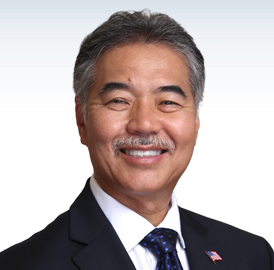 Hawaii will soon have less influence in setting national policies that affect everything from commercial fishing to endangered species in nearly 1.5 million square miles of the Pacific Ocean. Gov. David Ige’s administration twice missed deadlines to submit to federal officials a list of names to fill two at-large terms that expire in August on the Western Pacific Regional Fishery Management Council. The seats have historically been held by Hawaii residents. Instead, they will be filled from the lists provided by the governors of American Samoa and the Northern Mariana Islands. Guam, the other U.S. territory represented on the council, did not nominate anyone. click here to read the story 08:40
Hawaii will soon have less influence in setting national policies that affect everything from commercial fishing to endangered species in nearly 1.5 million square miles of the Pacific Ocean. Gov. David Ige’s administration twice missed deadlines to submit to federal officials a list of names to fill two at-large terms that expire in August on the Western Pacific Regional Fishery Management Council. The seats have historically been held by Hawaii residents. Instead, they will be filled from the lists provided by the governors of American Samoa and the Northern Mariana Islands. Guam, the other U.S. territory represented on the council, did not nominate anyone. click here to read the story 08:40
Western Pacific Regional Fishery Management Council Recommend Reducing 2017 Catch Limits for Three Species
 HONOLULU (21 June 2017) The Western Pacific Regional Fishery Management Council today concluded the second of its three-day meeting in Honolulu with a recommendation that the annual catch limits (ACLs) for three species in the US Pacific Islands be reduced in 2017. The reductions are recommended because the average commercial catches of these species have exceeded the ACLs over the past three years or more. click here to read the press release 15:10
HONOLULU (21 June 2017) The Western Pacific Regional Fishery Management Council today concluded the second of its three-day meeting in Honolulu with a recommendation that the annual catch limits (ACLs) for three species in the US Pacific Islands be reduced in 2017. The reductions are recommended because the average commercial catches of these species have exceeded the ACLs over the past three years or more. click here to read the press release 15:10
Chris Oliver Appointed to Lead NOAA Fisheries
 Today, Secretary of Commerce Wilbur Ross, with concurrence from the White House, named Chris Oliver Assistant Administrator for NOAA Fisheries. The Texas native assumed his new position on June 19, taking the helm from Acting Assistant Administrator Samuel Rauch who will return to his position as the Deputy Assistant Administrator for Regulatory Programs.,,, Oliver most recently served as Executive Director of the North Pacific Fishery Management Council, a position he held for the past 16 years. He has been with the Council since 1990, also serving as a fisheries biologist and then deputy director. During his tenure as executive director he led the way on several cutting edge management initiatives, including development of limited access privilege programs and fishery cooperatives and catch share programs, the North Pacific’s comprehensive onboard observer program, numerous bycatch reduction programs, extensive habitat protection measures, commercial and recreational allocation programs, and coastal community development programs. He was also responsible for all administrative and operational aspects of the Council process, and lead staffer for legislative and international issues. click here to read the press release 11:32
Today, Secretary of Commerce Wilbur Ross, with concurrence from the White House, named Chris Oliver Assistant Administrator for NOAA Fisheries. The Texas native assumed his new position on June 19, taking the helm from Acting Assistant Administrator Samuel Rauch who will return to his position as the Deputy Assistant Administrator for Regulatory Programs.,,, Oliver most recently served as Executive Director of the North Pacific Fishery Management Council, a position he held for the past 16 years. He has been with the Council since 1990, also serving as a fisheries biologist and then deputy director. During his tenure as executive director he led the way on several cutting edge management initiatives, including development of limited access privilege programs and fishery cooperatives and catch share programs, the North Pacific’s comprehensive onboard observer program, numerous bycatch reduction programs, extensive habitat protection measures, commercial and recreational allocation programs, and coastal community development programs. He was also responsible for all administrative and operational aspects of the Council process, and lead staffer for legislative and international issues. click here to read the press release 11:32
Western Pacific Regional Fishery Management Council meeting Honolulu, HI. June 19-22, 2017
 The Western Pacific Regional Fishery Management Council convenes , June 19-22, 2017 at Fuller Hall, YWCA, 1040 Richards St., Honolulu. Fishermen, other stakeholders and members of the public are invited to participate in the meeting and decision-making for federally managed fisheries in the offshore waters of Hawai’i, the Territories of American Samoa and Guam, Commonwealth of the Northern Mariana Islands (CNMI) and US Pacific Remote Island Areas. click here for information 22:34
The Western Pacific Regional Fishery Management Council convenes , June 19-22, 2017 at Fuller Hall, YWCA, 1040 Richards St., Honolulu. Fishermen, other stakeholders and members of the public are invited to participate in the meeting and decision-making for federally managed fisheries in the offshore waters of Hawai’i, the Territories of American Samoa and Guam, Commonwealth of the Northern Mariana Islands (CNMI) and US Pacific Remote Island Areas. click here for information 22:34
Monument review includes Northeast Canyons and Seamounts, Papahahanoukuakea National Marine Monument’s
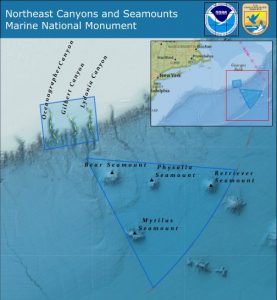 President Donald Trump’s call to review 27 national monuments established by three former presidents,,, Interior Secretary Ryan Zinke made his first recommendation Monday: Proposing a reduced size for the Bears Ears National Monument in Utah. He is set to issue a final report in late August for all the monuments. A closer look at five of the monuments that are being re-examined: Northeast Canyons and Seamounts National Monument, The designation closed the area to commercial fishermen, who go there primarily for lobster, red crab, squid, whiting, butterfish, swordfish and tuna. A coalition of commercial fishing groups filed a lawsuit in March to overturn the designation. They argued the creation of the monument would bring economic distress to fishermen and their families. Papahahanoukuakea National Marine Monument,The decision to expand the monument was the subject of fierce debate within Hawaii, with both sides invoking Native Hawaiian culture to argue why it should or shouldn’t be expanded. click here to read the story 08:30
President Donald Trump’s call to review 27 national monuments established by three former presidents,,, Interior Secretary Ryan Zinke made his first recommendation Monday: Proposing a reduced size for the Bears Ears National Monument in Utah. He is set to issue a final report in late August for all the monuments. A closer look at five of the monuments that are being re-examined: Northeast Canyons and Seamounts National Monument, The designation closed the area to commercial fishermen, who go there primarily for lobster, red crab, squid, whiting, butterfish, swordfish and tuna. A coalition of commercial fishing groups filed a lawsuit in March to overturn the designation. They argued the creation of the monument would bring economic distress to fishermen and their families. Papahahanoukuakea National Marine Monument,The decision to expand the monument was the subject of fierce debate within Hawaii, with both sides invoking Native Hawaiian culture to argue why it should or shouldn’t be expanded. click here to read the story 08:30
Scientists to Advise on Marine Monument Fishing Regulations, American Samoa Large Vessel Prohibited Area, Kona Crabs, ACL’s
 Renowned scientists from throughout the Pacific will convene in Honolulu June 13 to 15 to provide recommendations on managing fisheries in Hawai‘i, American Samoa, Guam, the Commonwealth of the Northern Mariana Islands (CNMI) and the US Pacific Remote Islands Areas. The meeting of the Western Pacific Regional Fishery Management Council’s Scientific and Statistical Committee (SSC) is open to the public and runs 8:30 a.m. to 5 p.m. at 1164 Bishop St., Suite 1400. Major agenda items include the following: Click here to read the press release 17:18
Renowned scientists from throughout the Pacific will convene in Honolulu June 13 to 15 to provide recommendations on managing fisheries in Hawai‘i, American Samoa, Guam, the Commonwealth of the Northern Mariana Islands (CNMI) and the US Pacific Remote Islands Areas. The meeting of the Western Pacific Regional Fishery Management Council’s Scientific and Statistical Committee (SSC) is open to the public and runs 8:30 a.m. to 5 p.m. at 1164 Bishop St., Suite 1400. Major agenda items include the following: Click here to read the press release 17:18
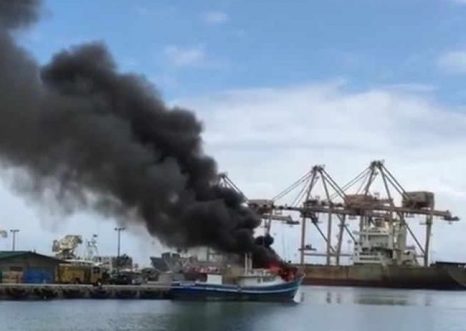
Crews battle 2-alarm boat fire at Pier 38 in Honolulu
Firefighters were called to Pier 38 at Honolulu Harbor Thursday afternoon for a report of a boat fire. The first call for the 2-alarm fire was shortly before 2 p.m. Fire officials say smoke and flames were coming from the forward section of the 79-foot-long fishing vessel “Elizabeth.” The Coast Guard is assisting with the fire. No injuries were reported. click here for photo’s and video 15:35
Marine National Monument Pushback: The Fight Over Papahanaumokuakea Just Escalated
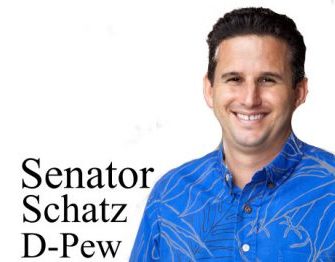 Government officials from the United States and three of its territories are working to undermine President Barack Obama’s marine conservation legacy less than four months after he left office. Obama used his executive authority in August to dramatically expand protected areas in the Pacific, the largest being the four-fold expansion last summer of Papahanaumokuakea Marine National Monument, which now covers 583,000 square miles in the Northwestern Hawaiian Islands. But with the Trump administration taking over in January, commercial fishermen and others who vehemently opposed the expansion of that monument and other marine preserves have renewed the fight.,, Leaders of the eight councils followed up with a March 1 letter to Trump explaining why they thought it was bad policy to keep American fishing vessels out of the monuments, saying it has “disrupted” the councils’ ability to manage the fisheries and eliminated the vessels’ ability to act as “watchdogs” over U.S. fishing grounds threatened by foreign fleets. click to continue reading the story here 08:17
Government officials from the United States and three of its territories are working to undermine President Barack Obama’s marine conservation legacy less than four months after he left office. Obama used his executive authority in August to dramatically expand protected areas in the Pacific, the largest being the four-fold expansion last summer of Papahanaumokuakea Marine National Monument, which now covers 583,000 square miles in the Northwestern Hawaiian Islands. But with the Trump administration taking over in January, commercial fishermen and others who vehemently opposed the expansion of that monument and other marine preserves have renewed the fight.,, Leaders of the eight councils followed up with a March 1 letter to Trump explaining why they thought it was bad policy to keep American fishing vessels out of the monuments, saying it has “disrupted” the councils’ ability to manage the fisheries and eliminated the vessels’ ability to act as “watchdogs” over U.S. fishing grounds threatened by foreign fleets. click to continue reading the story here 08:17
Congresswoman appeals the prohibition of American fisherman in National Marine Monuments
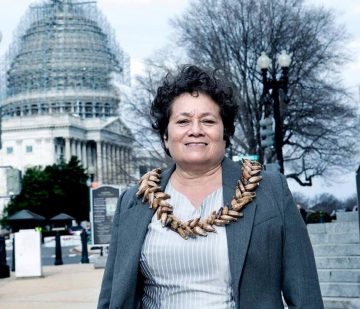 Congresswoman Aumua Amata has stressed to U.S. Department of Commerce Secretary Wilbur Ross the importance of removing the prohibition of American fisherman to fish in the waters of the National Marine Monuments. Aumua reports from Capitol Hill, “My conversation with Secretary Ross was about the need for American fishermen to be able to fish in waters that have been designated as Marine Monuments.“ While I think we can all agree about the importance of the National Marine Monuments, how they protect our pristine waters and coral reefs; the lack of consultation with the local American Samoan community and the fishing industry at large, has created detrimental effects on our economy. Read the rest here 08:28
Congresswoman Aumua Amata has stressed to U.S. Department of Commerce Secretary Wilbur Ross the importance of removing the prohibition of American fisherman to fish in the waters of the National Marine Monuments. Aumua reports from Capitol Hill, “My conversation with Secretary Ross was about the need for American fishermen to be able to fish in waters that have been designated as Marine Monuments.“ While I think we can all agree about the importance of the National Marine Monuments, how they protect our pristine waters and coral reefs; the lack of consultation with the local American Samoan community and the fishing industry at large, has created detrimental effects on our economy. Read the rest here 08:28
Western Pacific Regional Fishery Management Council seeks to Reopen Papahanaumokuakea to Fishing
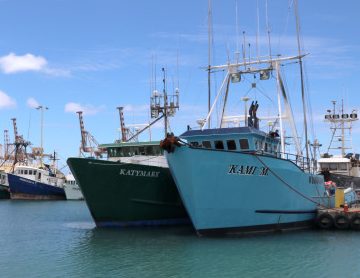 The Western Pacific Regional Fishery Management Council concluded its three-day meeting in Honolulu with a suite of recommendations, many of which are focused on keeping U.S. fishing grounds open to sustainably managed U.S. fisheries. The council includes the local fishery department directors from Hawaii, American Samoa, Guam and the CNMI, fishing experts appointed by the Governors and federal agencies involved in fishing-related activities. Marine national monuments, national marine sanctuaries, other marine protected area designations and Department of Defense training are among the uses that are increasingly closing off fishing grounds in U.S. waters. Council Chair Edwin A. Ebisui Jr. clarified that council communications to the administration about impacts of marine national monuments on fisheries are not lobbying. Some environmental activists recently made misleading statements about this in regards to a letter to President Trump prepared on March 1, 2017, by the Council Coordination Committee or CCC. The CCC includes the chairs of the nation’s eight regional fishery management councils. The letter details the impact of designations of Marine National Monuments under the Antiquities Act in the Atlantic and Pacific Oceans and was submitted to the president after conferring with the NOAA Office of General Counsel. To address the impacts of ever increasing fishing grounds being closed, the council agreed to the following: continue reading the story here 06:09
The Western Pacific Regional Fishery Management Council concluded its three-day meeting in Honolulu with a suite of recommendations, many of which are focused on keeping U.S. fishing grounds open to sustainably managed U.S. fisheries. The council includes the local fishery department directors from Hawaii, American Samoa, Guam and the CNMI, fishing experts appointed by the Governors and federal agencies involved in fishing-related activities. Marine national monuments, national marine sanctuaries, other marine protected area designations and Department of Defense training are among the uses that are increasingly closing off fishing grounds in U.S. waters. Council Chair Edwin A. Ebisui Jr. clarified that council communications to the administration about impacts of marine national monuments on fisheries are not lobbying. Some environmental activists recently made misleading statements about this in regards to a letter to President Trump prepared on March 1, 2017, by the Council Coordination Committee or CCC. The CCC includes the chairs of the nation’s eight regional fishery management councils. The letter details the impact of designations of Marine National Monuments under the Antiquities Act in the Atlantic and Pacific Oceans and was submitted to the president after conferring with the NOAA Office of General Counsel. To address the impacts of ever increasing fishing grounds being closed, the council agreed to the following: continue reading the story here 06:09
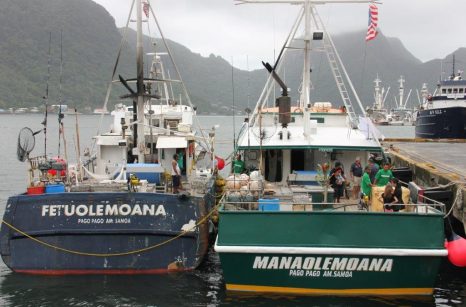
American Samoa wins suit against NMFS over Large Vessel Prohibited Area rule change
American Samoa has won its lawsuit against the National Marine Fisheries Service over the Large Vessel Prohibited Area rule change. Hawaii Federal District Court Judge, Judge Leslie E. Kobayashi issued her ruling in the Territory of American Samoa’s case against NOAA ruling in favor of the Territory and vacating and setting aside NOAA rule 81 Fed. Reg. 5619 (Feb. 3, 2016) which shrunk the Large Vessel Prohibited Area (LVPA) from 50 to 12 miles. This allowed long-line vessels larger than 50 feet in length to fish closer to the islands. The Court reached this decision after concluding that NOAA failed to consider the Deeds of Cession. Specifically the Court ruled that, “the Deeds of Cession require the United States to preserve American Samoan cultural fishing practices and that the deeds constitute “any other applicable law” for purposes of the [Magnusson Stevens Act].” continue reading the story here 11:10
Trump policies could mean big boon for Hawaii’s commercial fishermen and the enviro’s are upset!
The debate over fishing regulations at the Papahanaumokuakea Marine National Monument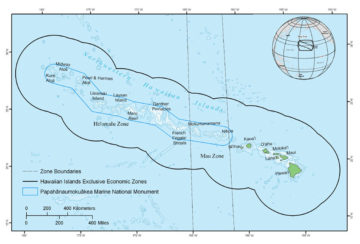 is heating up again. The council that helps outline rules for fishing in the federally protected area says it wants to work with the Trump Administration to ease restrictions there, making it easy for Hawaii’s commercial fishermen to work in waters around the monument. Environmental groups are demanding protections remain in place. Some are even calling for an investigation. The Western Pacific Regional Fishery Management Council – known as Wespac – is meeting at the Ala Moana Hotel through Thursday. At the same venue as the Wespac meeting, a coalition of environmentalists and conservationist came together on Tuesday to challenge the council’s position. Watch the video, read the story here 08:46
is heating up again. The council that helps outline rules for fishing in the federally protected area says it wants to work with the Trump Administration to ease restrictions there, making it easy for Hawaii’s commercial fishermen to work in waters around the monument. Environmental groups are demanding protections remain in place. Some are even calling for an investigation. The Western Pacific Regional Fishery Management Council – known as Wespac – is meeting at the Ala Moana Hotel through Thursday. At the same venue as the Wespac meeting, a coalition of environmentalists and conservationist came together on Tuesday to challenge the council’s position. Watch the video, read the story here 08:46
Oversight Hearing on Examining the Creation and Management of Marine Monuments and Sanctuaries Wednesday, March 15, 2017 10:00 AM
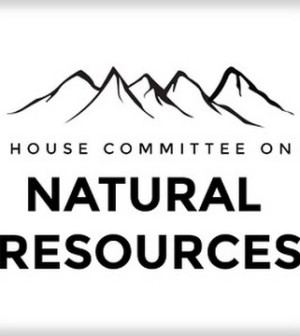 Oversight Hearing on: “Examining the Creation and Management of Marine Monuments and Sanctuaries” Click here to read the memo Witnesses and Testimony: Dr. John Bruno Professor, Department of Biology University of North Carolina, Mr. Chett Chiasson Executive Director Greater Lafourche Port Commission, Mr. Brian Hallman Executive Director American Tunaboat Association, The Honorable Jon Mitchell Mayor City of New Bedford Click here @ 10:00am and listen to the hearing. 19:05
Oversight Hearing on: “Examining the Creation and Management of Marine Monuments and Sanctuaries” Click here to read the memo Witnesses and Testimony: Dr. John Bruno Professor, Department of Biology University of North Carolina, Mr. Chett Chiasson Executive Director Greater Lafourche Port Commission, Mr. Brian Hallman Executive Director American Tunaboat Association, The Honorable Jon Mitchell Mayor City of New Bedford Click here @ 10:00am and listen to the hearing. 19:05
Trump asked to remove all marine monument fishing prohibitions established by the past two administrations
 The request is from the chairman of the House Committee on Natural Resources, Congressman Rob Bishop, and American Samoa’s Congresswoman Aumua Amata. The letter says prohibitions on commercial fishing in marine monuments, or reserves, has impacted the US fishing fleet as well as forcing one cannery operation in Pago Pago to close. According to the two Republicans, closing US waters to domestic fisheries is federal overreach and obstructs well managed, sustainable US fishing industries in favour of foreign counterparts. The letter says over half of US waters in the Pacific have been closed to commercial fishing by a stroke of the pen without specific evidence, socioeconomic analysis, or a deliberative and public process. Link 08:10
The request is from the chairman of the House Committee on Natural Resources, Congressman Rob Bishop, and American Samoa’s Congresswoman Aumua Amata. The letter says prohibitions on commercial fishing in marine monuments, or reserves, has impacted the US fishing fleet as well as forcing one cannery operation in Pago Pago to close. According to the two Republicans, closing US waters to domestic fisheries is federal overreach and obstructs well managed, sustainable US fishing industries in favour of foreign counterparts. The letter says over half of US waters in the Pacific have been closed to commercial fishing by a stroke of the pen without specific evidence, socioeconomic analysis, or a deliberative and public process. Link 08:10
Questions raised about Coast Guard armed boarding
Pago Pago – 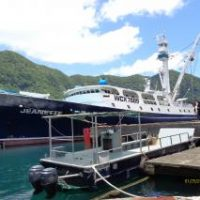 Some new information is emerging about the Coast Guard operation in which the purse seiner Jeanette was boarded by armed Coast Guard personnel at the main dock late last week, Bill Sardinha, whose company Sardinha & Cileu Management, provides services for the Jeanette said in an email to KHJ News, the Jeanette came into port on its own, and not ordered to return as we reported. He said a helicopter pilot on board has fallen ill and this required the vessel o return to Am Samoa for medical care Sardinha explained that the Jeanette was required to notify the US Coast in advance 96 hours, less if an emergency or if circumstance warrants exception, an illness qualifies. So the Coast Guard was well aware of its arrival. Sardinha reports that upon entering port on February 23rd, the Jeanette was surprised to find US government agents waiting to board the vessel with guns. He said the agents boarded the vessel, posted guards, isolated the crew and interrogated them for 12 hours. continue reading the story here 21:50
Some new information is emerging about the Coast Guard operation in which the purse seiner Jeanette was boarded by armed Coast Guard personnel at the main dock late last week, Bill Sardinha, whose company Sardinha & Cileu Management, provides services for the Jeanette said in an email to KHJ News, the Jeanette came into port on its own, and not ordered to return as we reported. He said a helicopter pilot on board has fallen ill and this required the vessel o return to Am Samoa for medical care Sardinha explained that the Jeanette was required to notify the US Coast in advance 96 hours, less if an emergency or if circumstance warrants exception, an illness qualifies. So the Coast Guard was well aware of its arrival. Sardinha reports that upon entering port on February 23rd, the Jeanette was surprised to find US government agents waiting to board the vessel with guns. He said the agents boarded the vessel, posted guards, isolated the crew and interrogated them for 12 hours. continue reading the story here 21:50
American Samoa: Coast Guard comments on armed boarding of purse seiner Jeanette
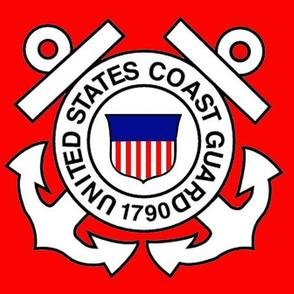 As we reported this morning, armed Coast Guard agents who arrived on a C-130 aircraft boarded the purse seine Jeanette apparently looking for drugs. The Jeanette had been out at sea but was ordered to return to port. A fishing boat owner who was at the dock said that friends on the Jeanette said the agents were looking for drugs but didnt find any. More than half a dozen Coast Guard men from Honolulu were involved in the operation. Lt. Kevin Whalen, head of the Coast Guard Marine Safety Detachment Unit in Pago Pago, sought permission from Coast Guard Public Affairs in Honolulu to respond to our questions about the operation. This is the statement he was authorized to give KHJ News: “The Coast Guard was engaged in an active law enforcement in American Samoa. “It is the policy and standard practice of the Coast Guard to conduct law enforcement boardings, armed. The Coast Guard is committed to public safety.” Link 14:24
As we reported this morning, armed Coast Guard agents who arrived on a C-130 aircraft boarded the purse seine Jeanette apparently looking for drugs. The Jeanette had been out at sea but was ordered to return to port. A fishing boat owner who was at the dock said that friends on the Jeanette said the agents were looking for drugs but didnt find any. More than half a dozen Coast Guard men from Honolulu were involved in the operation. Lt. Kevin Whalen, head of the Coast Guard Marine Safety Detachment Unit in Pago Pago, sought permission from Coast Guard Public Affairs in Honolulu to respond to our questions about the operation. This is the statement he was authorized to give KHJ News: “The Coast Guard was engaged in an active law enforcement in American Samoa. “It is the policy and standard practice of the Coast Guard to conduct law enforcement boardings, armed. The Coast Guard is committed to public safety.” Link 14:24
Stunned chopper pilot finds castaways lost at sea on two seperate boats from Kiribati
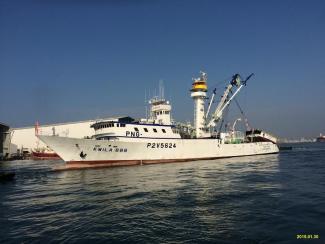 The pilot, operating the chopper from a trawler off the Marshall Islands, came across the boats by chance last week, leading to the rescue of three fishermen and a teenage boy, the Marshall Islands Journal reported. It said both boats had set off from Kiribati, about 650 kilometres (400 miles) away. The one with three fishermen aboard had been adrift for 28 days, while the lone 14-year-old in the other had been lost for 11 days. Ocean currents had brought both boats within eight kilometres of each other but they were unaware of the other’s existence until they were spotted and rescued. The trawler Kwila888 picked up the drifters and cut short its tuna fishing trip to drop them in the Marshalls’ capital Majuro last weekend, the Journal reported. Link 15:53
The pilot, operating the chopper from a trawler off the Marshall Islands, came across the boats by chance last week, leading to the rescue of three fishermen and a teenage boy, the Marshall Islands Journal reported. It said both boats had set off from Kiribati, about 650 kilometres (400 miles) away. The one with three fishermen aboard had been adrift for 28 days, while the lone 14-year-old in the other had been lost for 11 days. Ocean currents had brought both boats within eight kilometres of each other but they were unaware of the other’s existence until they were spotted and rescued. The trawler Kwila888 picked up the drifters and cut short its tuna fishing trip to drop them in the Marshalls’ capital Majuro last weekend, the Journal reported. Link 15:53
Hawaii bill would ban licenses for some foreign fishermen
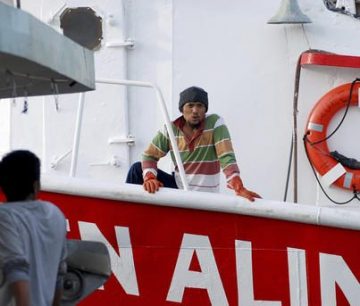 A bill in the Hawaii Legislature aims to change rules for how fishing licenses are issued to foreign crew members that make up the majority of the state’s commercial fleet. Now, boat owners or captains bring foreign crew members’ passports and customs documents to a state agency to get their licenses – without the fishermen present. A federal legal loophole allows foreign fishermen to work off the coast of Hawaii, but they are technically not allowed to enter the country. The bill would require anyone seeking a commercial fishing license in Hawaii to appear in person. State Sen. Karl Rhoads says he wants to change the law so people who are not permitted to enter the U.S. cannot get a license to fish on American-flagged boats sailing from Honolulu. The Hawaii Longline Association opposed the bill, saying the industry is already regulated and additional requirements are unnecessary. Read the story here 16:00
A bill in the Hawaii Legislature aims to change rules for how fishing licenses are issued to foreign crew members that make up the majority of the state’s commercial fleet. Now, boat owners or captains bring foreign crew members’ passports and customs documents to a state agency to get their licenses – without the fishermen present. A federal legal loophole allows foreign fishermen to work off the coast of Hawaii, but they are technically not allowed to enter the country. The bill would require anyone seeking a commercial fishing license in Hawaii to appear in person. State Sen. Karl Rhoads says he wants to change the law so people who are not permitted to enter the U.S. cannot get a license to fish on American-flagged boats sailing from Honolulu. The Hawaii Longline Association opposed the bill, saying the industry is already regulated and additional requirements are unnecessary. Read the story here 16:00
Saving the whales – 19th-century hunting techniques now used to help, not kill humpbacks
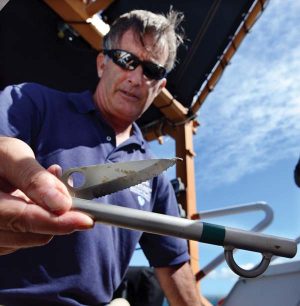 To save whales tangled in netting and debris, rescuers take a page right out of the 1850s whale-hunting playbook. To catch and kill the animals, 19th-century whalers would harpoon the creatures, add a barrel to the line to slow and force them to surface. Then they’d lance captured whales and let them bleed out. Now, rescuers follow similar but nonviolent steps — tossing a hook to catch the debris on a whale, adding a buoy to slow it and using a knife rigged on a pole to cut away entangled fishing gear or other marine debris. Instead of a barrel of oil, their reward is watching the whale swim free. “We stole it from whalers in the 1850s,” said Ed Lyman, large whale entanglement response coordinator with the Hawaiian Islands Humpback Whale National Marine Sanctuary. “Here we are using their technique to actually save whales.” Continue reading the story here 09:58
To save whales tangled in netting and debris, rescuers take a page right out of the 1850s whale-hunting playbook. To catch and kill the animals, 19th-century whalers would harpoon the creatures, add a barrel to the line to slow and force them to surface. Then they’d lance captured whales and let them bleed out. Now, rescuers follow similar but nonviolent steps — tossing a hook to catch the debris on a whale, adding a buoy to slow it and using a knife rigged on a pole to cut away entangled fishing gear or other marine debris. Instead of a barrel of oil, their reward is watching the whale swim free. “We stole it from whalers in the 1850s,” said Ed Lyman, large whale entanglement response coordinator with the Hawaiian Islands Humpback Whale National Marine Sanctuary. “Here we are using their technique to actually save whales.” Continue reading the story here 09:58
Anti-Fishing Lies Exposed: Attorney General Releases Point by Point Debunk of Kaniela Ing
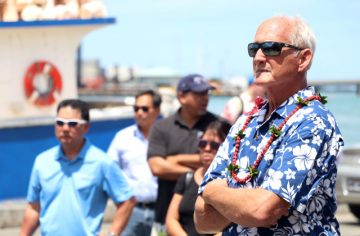 News Release from Hawaii Attorney General, Feb 13, 2017 HONOLULU – Attorney General Doug Chin today released a letter dated December 29, 2016, with the permission of the legislator who originally received it, responding to several questions regarding labor conditions in the commercial fishing industry at Honolulu Harbor. PDF: A copy of the letter is attached. (Must read: AG responds to 9 questions from Ing. Short version of response: “No.”) Latest Anti-Fishing Hype from AP: Hawaii may be breaking law by allowing foreign men to fish Last Year’s Anti-Fishing Hype from AP: Hawaiian seafood caught by foreign crews confined on boats Read the news release here, with links to the AP articles. 16:21
News Release from Hawaii Attorney General, Feb 13, 2017 HONOLULU – Attorney General Doug Chin today released a letter dated December 29, 2016, with the permission of the legislator who originally received it, responding to several questions regarding labor conditions in the commercial fishing industry at Honolulu Harbor. PDF: A copy of the letter is attached. (Must read: AG responds to 9 questions from Ing. Short version of response: “No.”) Latest Anti-Fishing Hype from AP: Hawaii may be breaking law by allowing foreign men to fish Last Year’s Anti-Fishing Hype from AP: Hawaiian seafood caught by foreign crews confined on boats Read the news release here, with links to the AP articles. 16:21
American Samoa: Local fishing fleet shocked at killing of navigator
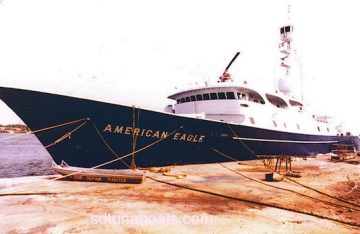 The apparent murder of a navigator on board a vessel docked in Pago Pago Harbor has come as a shock to the close knit fishing fleet. Commissioner of Public Safety Le’i Sonny Thompson would only confirm the death of a fisherman on board a boat, but information gathered from KHJ News shows that the deceased was found dead on board the vessel American Eagle. It’s believed that his neck had been slashed. Nearly all of the crew of the vessel, mainly Vietnamese and Taiwanese, were taken in for questioning at the police station yesterday. The local agents for the vessel is KS Shipping. A veteran stevedore agent was shocked to hear about the apparent killing. He said such a heinous crime is uncommon for this port which is relatively peaceful and friendly. link 12:20
The apparent murder of a navigator on board a vessel docked in Pago Pago Harbor has come as a shock to the close knit fishing fleet. Commissioner of Public Safety Le’i Sonny Thompson would only confirm the death of a fisherman on board a boat, but information gathered from KHJ News shows that the deceased was found dead on board the vessel American Eagle. It’s believed that his neck had been slashed. Nearly all of the crew of the vessel, mainly Vietnamese and Taiwanese, were taken in for questioning at the police station yesterday. The local agents for the vessel is KS Shipping. A veteran stevedore agent was shocked to hear about the apparent killing. He said such a heinous crime is uncommon for this port which is relatively peaceful and friendly. link 12:20
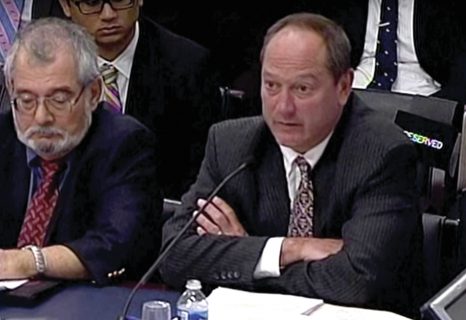
North Pacific council director a possibility for Assistant Administrator position at NMFS replacing Eileen Sobeck
Chris Oliver, the executive director of the North Pacific Fishery Management Council for the past 16 years, didn’t ask for a consideration as the new assistant administrator for the National Marine Fisheries Service; rather, the most powerful fishing industry voices in the nation’s most profitable region asked. He doesn’t know if the new administration will offer it or if he’d want it if it did. Still, looking at his history, knowledge and reputation, he seems in many ways a natural fit. Oliver said when it became known that the current administrator, Eileen Sobeck, won’t be staying with the new administration, parts of the fishing universe aligned. In the North Pacific and elsewhere, catch share systems are a contentious issue; Oliver said in an interview he’s already had fisheries stakeholders from other regions probing for what his intent would be with their respective fisheries. Oliver’s answer sums up both his attitude and in part that of the new administration. “It’s not my call,” he said. “What makes sense in the North Pacific…may not make sense in New England, or in the Gulf of Mexico. Read the story here 10:47
American Samoan Governor Lolo Moliga gets tough with NOAA
American Samoan Gov. 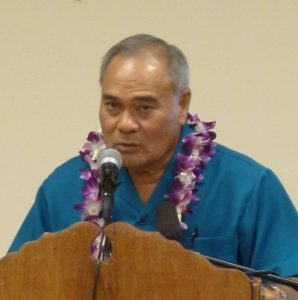 called a spade a spade when he met with officials from the National Marine Sanctuary Foundation visiting the territory last week. Speaking at Friday’s cabinet meeting, the first for the new administration, the governor said he told officials from the National Oceanic and Atmospheric Administration that their local office, is just that — an office, and it cannot dictate what American Samoa can and cannot do. He said it’s not that American Samoa is against conservation, but it’s the way that the federal government has gone about the takeover of local waters included in the sanctuary that he has a problem with. The governor said he told the feds that American Samioa is prepared to fight for ownership of its resources in the lawsuit now before the U.S. District Court of Honolulu, which goes to trial this week. Link 09:38
called a spade a spade when he met with officials from the National Marine Sanctuary Foundation visiting the territory last week. Speaking at Friday’s cabinet meeting, the first for the new administration, the governor said he told officials from the National Oceanic and Atmospheric Administration that their local office, is just that — an office, and it cannot dictate what American Samoa can and cannot do. He said it’s not that American Samoa is against conservation, but it’s the way that the federal government has gone about the takeover of local waters included in the sanctuary that he has a problem with. The governor said he told the feds that American Samioa is prepared to fight for ownership of its resources in the lawsuit now before the U.S. District Court of Honolulu, which goes to trial this week. Link 09:38
American Samoa Governor Lolo Moliga – US Sanctuary Program cannot dictate how territorial government uses local waters
 The governor said he met with officials of the National Marine Sanctuary Foundation and explained to them the position of the legislature and the executive branch concerning federal oversight of areas included in the Sanctuary of American samoa. He said it’s not that American Samoa is against conservation, rather it’s the way that the federal government has taken over jurisdiction of local waters included in the sanctuary that he has a problem with. Waters included in the marine Sanctuary of American Samoa are not open for commercial fishing, and there are also restrictions on take for subsistence fishing. Speaking at a cabinet meeting the governor also said that the Attorney General will fight American Samoa’s lawsuit against the US government to take back control of local waters. link 09:20
The governor said he met with officials of the National Marine Sanctuary Foundation and explained to them the position of the legislature and the executive branch concerning federal oversight of areas included in the Sanctuary of American samoa. He said it’s not that American Samoa is against conservation, rather it’s the way that the federal government has taken over jurisdiction of local waters included in the sanctuary that he has a problem with. Waters included in the marine Sanctuary of American Samoa are not open for commercial fishing, and there are also restrictions on take for subsistence fishing. Speaking at a cabinet meeting the governor also said that the Attorney General will fight American Samoa’s lawsuit against the US government to take back control of local waters. link 09:20






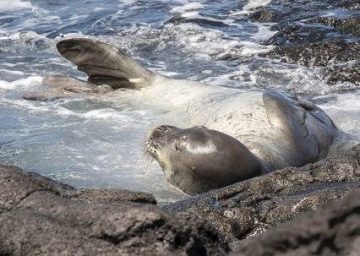 An endangered Hawaiian monk seal has died after wandering into a net pen and becoming trapped at a fish farm that was partially funded by the National Oceanic and Atmospheric Administration in Hawaii. Officials with NOAA said Thursday the death of the 10-year-old monk seal happened at Blue Ocean Mariculture, the same fish farm that NOAA’s National Marine Fishery Service has been using for research in conjunction with a plan to expand aquaculture into federal waters around the Pacific. Ann Garrett, the service’s assistant regional administrator for protected resources, confirmed the farm was the same one used for the NOAA-funded research, but could not comment further on the agency’s involvement. NOAA is working on a plan to expand aquaculture into federals waters despite concerns by some environmental groups who say the industrial-scale farms could do more harm than good to overall fish stocks and ocean health.
An endangered Hawaiian monk seal has died after wandering into a net pen and becoming trapped at a fish farm that was partially funded by the National Oceanic and Atmospheric Administration in Hawaii. Officials with NOAA said Thursday the death of the 10-year-old monk seal happened at Blue Ocean Mariculture, the same fish farm that NOAA’s National Marine Fishery Service has been using for research in conjunction with a plan to expand aquaculture into federal waters around the Pacific. Ann Garrett, the service’s assistant regional administrator for protected resources, confirmed the farm was the same one used for the NOAA-funded research, but could not comment further on the agency’s involvement. NOAA is working on a plan to expand aquaculture into federals waters despite concerns by some environmental groups who say the industrial-scale farms could do more harm than good to overall fish stocks and ocean health. 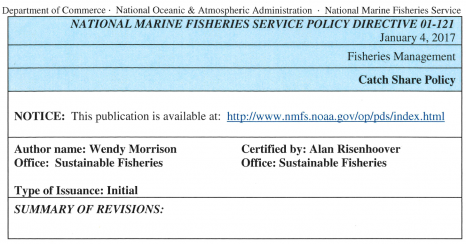




























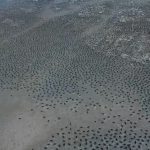
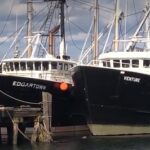
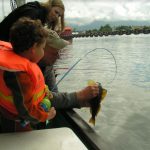
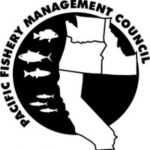
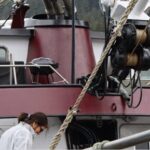
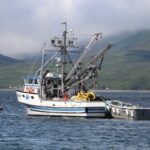



Interior Department Releases List of Monuments Under Review, First-Ever Formal Public Comment Period for Antiquities Act Monuments
Share this post